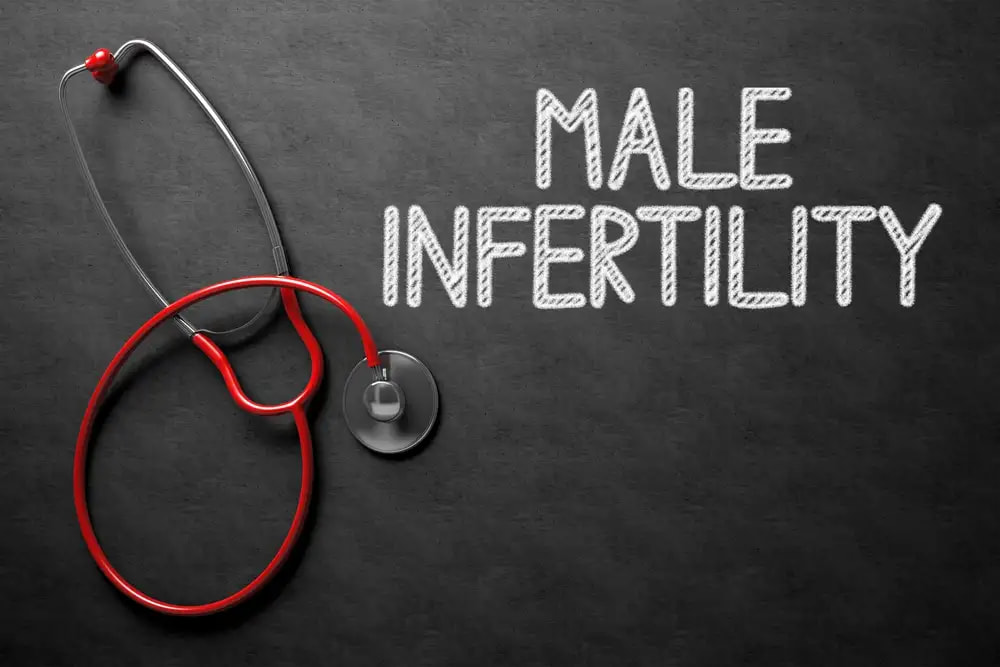- Home

- Fertility Problems

- Top 5 causes of infertility in men & women and ways to cure it for a healthy conception
In this Article

Fertility Problems
Top 5 causes of infertility in men & women and ways to cure it for a healthy conception
Updated on 3 November 2023
According to a report issued by the National Health Portal of India, around 10-15% of Indian Couples are affected by infertility. Contrary to common misconception, both men and women can have infertility.
This blog features the top 5 causes of infertility in men and women, how to cure them with the proper treatment, and a fertility-boosting diet plan.
Top 5 Causes Of Infertility In Men & Women
Many different factors can contribute to infertility in men and women. Some of these include:
1. Age
As we age, our bodies undergo changes that can affect fertility. For women, age is the most common factor contributing to infertility—the chances of getting pregnant decline rapidly after age 35. For men, age can also play a role in fertility, although it is not as big of a factor as it is for women.
2. Stress
Stress can have a negative impact on both men's and women's fertility. It can interfere with a woman's menstrual cycle and lower a man's sperm count.
3. Weight
Both being overweight and underweight can affect fertility. Being overweight can lead to hormonal imbalances, which can interfere with ovulation. Being underweight can also affect ovulation. A fertility-boosting diet plan will provide the proper nutrition to aid in conception.
4. Health Conditions
Various health conditions, such as polycystic ovary syndrome (PCOS), endometriosis, and uterine fibroids, can impact fertility.
5. Lifestyle
Certain lifestyle habits are incredibly harmful to reproductive health. For example, smoking is detrimental to both men's and women's fertility. It can damage a woman's eggs, and it can also lower a man's sperm count.
Top Male Infertility Treatments
When it comes to fertility treatments, while many common treatments can be used for both sexes, some treatments are specific to men. Some of these include:
-
For men, one of the most common fertility treatments is testosterone therapy. This treatment can help improve sperm production and motility, both of which are important for fertility. In some cases, testosterone therapy may be used with other fertility treatments, such as in vitro fertilization (IVF).
-
Other common male fertility treatments include:
-
Human Chorionic Gonadotropin (hCG) therapy- can help stimulate sperm production
-
Intrauterine Insemination (IUI)- is a technique used to place sperm directly into the uterus
-
More advanced fertility treatments are available for men with more severe fertility issues, such as sperm retrieval techniques and IVF with intracytoplasmic sperm injection (ICSI). These techniques can be used alone or in combination, depending on the situation.
Top Female Infertility Treatments
Here are some of the top treatments that can help counter female infertility:
-
In vitro fertilization (IVF) is a process where eggs are first fertilized with sperm outside of the body, and the fertilized eggs are then implanted into the uterus. IVF is often used when there are issues with the fallopian tubes or the sperm cannot fertilize the eggs.
-
Intracytoplasmic sperm injection (ICSI) is a variation of IVF where a single sperm is injected into each egg. ICSI is often used when there are issues with the sperm. Fertility drugs can also be used to help stimulate ovulation.
-
In some cases, surgery may be needed to repair the reproductive organs, such as removing blockages in the fallopian tubes or correcting endometriosis.
-
Furthermore, making some lifestyle changes can also help improve fertility. For example, quitting smoking, maintaining a healthy weight, following a fertility diet plan to improve egg quality, and reducing stress can improve fertility.
You may like to watch :
End Note: The Need For Fertility Boosting Diet Plan
A fertility-boosting diet plan helps to improve fertility in men and women by providing the nutrients needed for optimal reproductive health. Here are a few essential nutrients that are especially important to improve fertility:
-
Omega-3 fatty acids are essential for fertility because they help to promote hormone balance. They can be found in foods like salmon, walnuts, and flaxseed oil.
-
Folate is a nutrient that helps to prevent congenital disabilities. It is found in leafy green vegetables, legumes, and fortified foods.
-
Vitamin D is essential for fertility because it helps to regulate menstrual cycles. It can be found in fortified milk, fatty fish, and egg yolks.
If you are trying to boost your fertility, it is crucial to focus on eating a nutrient-rich diet. Add more omega-3 fatty acids, folate, and vitamin D to the fertility diet plan by including foods like salmon, leafy greens, and fortified milk in your meals. It is sure to improve your fertility significantly.
You may also like to read: https://mylofamily.com/article/signs-symptoms-of-infertility-in-women-men-and-w-44388?



Written by
sakshi prasad
Get baby's diet chart, and growth tips

Related Articles
Related Questions
Influenza and boostrix injection kisiko laga hai kya 8 month pregnancy me and q lagta hai ye plz reply me

Hai.... My last period was in feb 24. I tested in 40 th day morning 3:30 .. That is faint line .. I conculed mylo thz app also.... And I asked tha dr wait for 3 to 5 days ... Im also waiting ... Then I test today 4:15 test is sooooo faint ... And I feel in ma body no pregnancy symptoms. What can I do .

Baby kicks KB Marta hai Plz tell mi

PCOD kya hota hai

How to detect pcos

Related Topics
RECENTLY PUBLISHED ARTICLES
our most recent articles

Diet & Nutrition
গর্ভাবস্থায় আলুবোখরা: উপকারিতা ও ঝুঁকি | Prunes During Pregnancy: Benefits & Risks in Bengali

Diet & Nutrition
গর্ভাবস্থায় হিং | ঝুঁকি, সুবিধা এবং অন্যান্য চিকিৎসা | Hing During Pregnancy | Risks, Benefits & Other Treatments in Bengali

Women Specific Issues
স্তনের উপর সাদা দাগ: লক্ষণ, কারণ এবং চিকিৎসা | White Spots on Nipple: Causes, Symptoms, and Treatments in Bengali

Diet & Nutrition
গর্ভাবস্থায় পোহা: উপকারিতা, ধরণ এবং রেসিপি | Poha During Pregnancy: Benefits, Types & Recipes in Bengali

Diet & Nutrition
গর্ভাবস্থায় মাছ: উপকারিতা এবং ঝুঁকি | Fish In Pregnancy: Benefits and Risks in Bengali

Diet & Nutrition
গর্ভাবস্থায় রেড ওয়াইন: পার্শ্ব প্রতিক্রিয়া এবং নির্দেশিকা | Red Wine During Pregnancy: Side Effects & Guidelines in Bengali
- ইনার থাই চ্যাফিং: কারণ, উপসর্গ এবং চিকিৎসা | Inner Thigh Chafing: Causes, Symptoms & Treatment in Bengali
- গর্ভাবস্থায় ব্রাউন রাইস: উপকারিতা ও সতর্কতা | Brown Rice During Pregnancy: Benefits & Precautions in Bengali
- Velamentous Cord Insertion - Precautions, Results & Safety
- Unlock the Secret to Flawless Skin: 7 Must-Have Qualities in a Face Serum
- Unlock the Secret to Radiant Skin: How Vitamin C Serum Can Transform Your Complexion
- Gender No Bar: 10 Reasons Why Everyone Needs a Body Lotion
- Unlock the Secret to Radiant Skin How to Choose the Perfect Body Lotion for Your Skin Type
- Top 10 Reasons to Apply a Body Lotion After Every Bath
- Communication in Toddlers: Milestones & Activities
- How to Improve Vocabulary for Toddlers?
- A Comprehensive Guide to Understanding Placenta Accreta
- Vulvovaginitis in Toddlers Causes, Symptoms and Treatment
- A Comprehensive Guide to Understanding Cerebral Palsy in Children
- Bitter Taste in Mouth During Pregnancy: Understanding the Causes and Remedies


AWARDS AND RECOGNITION

Mylo wins Forbes D2C Disruptor award

Mylo wins The Economic Times Promising Brands 2022
AS SEEN IN
















- Mylo Care: Effective and science-backed personal care and wellness solutions for a joyful you.
- Mylo Baby: Science-backed, gentle and effective personal care & hygiene range for your little one.
- Mylo Community: Trusted and empathetic community of 10mn+ parents and experts.
Product Categories
baby carrier | baby soap | baby wipes | stretch marks cream | baby cream | baby shampoo | baby massage oil | baby hair oil | stretch marks oil | baby body wash | baby powder | baby lotion | diaper rash cream | newborn diapers | teether | baby kajal | baby diapers | cloth diapers |








